The Igbo-Ukwu archaeological discovery has not only countered the misconception that Africans were crude, uncivilized, and with no form of technological ingenuity but has also shown that Igbos had a rich thriving civilization long before contact with the British.
Historically, the missionaries and the colonial masters arrived in Nigeria in the 19th century. Whereas radio-carbon dating placed these artefacts to have been in existence since 850AD.
Join our WhatsApp ChannelHence, it validates that the Igbo man was the earliest worker of bronze in the whole of sub-Saharan Africa, centuries before the well-known Ife and Benin bronzes.
Igbo-Ukwu, a town originally known as Igbo-Nkwo is located in Aguata Local Government Area of Anambra State.
These artefacts were first accidentally discovered in 1939 by Isaiah Anozie while digging a well in his compound. He gave out some of these artefacts because he was unaware of the archaeological and cultural importance.
READ ALSO:
- We Will Protect Benin Artefacts, Tinubu Assures Oba
- Germany To Return 7,000 Benin Artefacts To Nigeria In October
- Nigeria’s Repatriated Artefacts Potential Revenue Earner, Says Buhari
The then-British colonial district officer of the area sold some of these antiquities, gave some to the Antiquity Department of Nigeria, and published them in a journal at the same time. He concluded that the findings were unrelated to the ways of the Igbo man since it seemed to him that the Igbos were incapable of such technological prowess.
Subsequent discoveries were made twenty years later, in 1959, and also in 1964.
To further investigate these discoveries, the Antiquity Department of Nigeria invited an archaeologist, Thurstan Shaw, to excavate the site. Later, two other archaeological sites were discovered around the original site.
The three sites were named after the three brothers whose compound the sites were located in; Isaiah, Richard and Jonah. Hence Igbo-Isaiah, Igbo-Richard and Igbo-Jonah.
Igbo-Isaiah- Repository of Ceremonial Objects
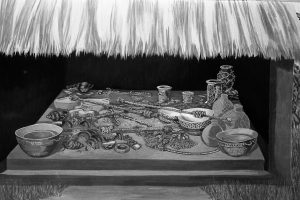
Artefacts obtained from Igbo-Isaiah indicated elaborate cast bronze objects from a dismantled shrine including ceremonial vessels, pot stands, Jewry, a small pendant with facial marks and various ornamental regalia.
Igbo-Richard- A Burial Chamber
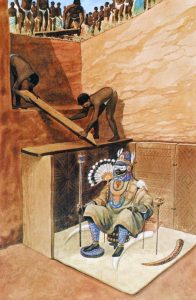
Evidence obtained from this site reflected the burial of an individual of great political, religious, or societal status. Objects discovered include human remains from several individual wooden stool glass beads, preserved textiles, elephant tusks, cast bronze regalia, bronze vessels and so on.
Igbo-Jonah- A Storage Chamber
This site had ritual pottery, charcoal ceramic shreds, bronze sculptures and glass beads.
Analysis of the significance of the Igbo-Ukwu objects shows that the Igbo-Ukwu people were advanced in metalwork (metallurgy) before contact with the Europeans.
It also shows bronze work earlier than those of Benin and Ife Bronzes that existed 500 years later.
Research and Isotope analysis shows that materials used for metalwork were locally sourced. This is backed by the archaeological discovery of Iron smelting in Lejja and Opi in Nsukka dating 2000BC and 750BC respectively.
Some of the artefacts like glasses and beads discovered indicate long-distant trade traced to far Egypt.
That Igbos, Nigeria and Sub-Sahara Africa had a complex civilization.
Some Of The Artefacts From The Igbo-Ukwu Archaeological Site
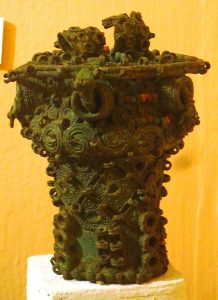
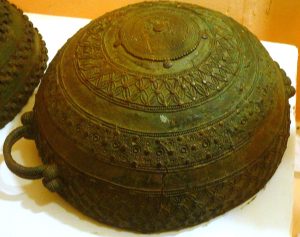
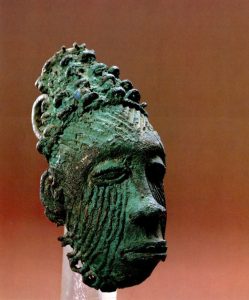
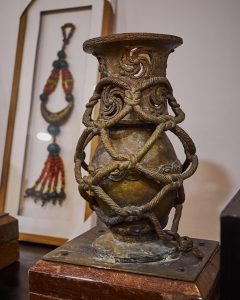
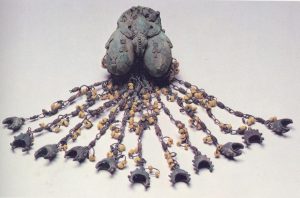
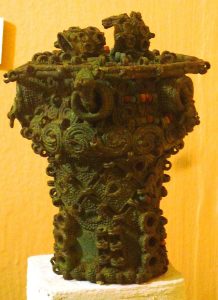
Method In Metalwork Of Igbo-Ukwu Artefacts
The technique used was that of the lost-wax technique. This involves the use of hammering, bending, twisting and incising. They were likely the first group of Africans to employ this technique.
Some of these artefacts are on display at the National Museum, Lagos while others are in the British Museum.

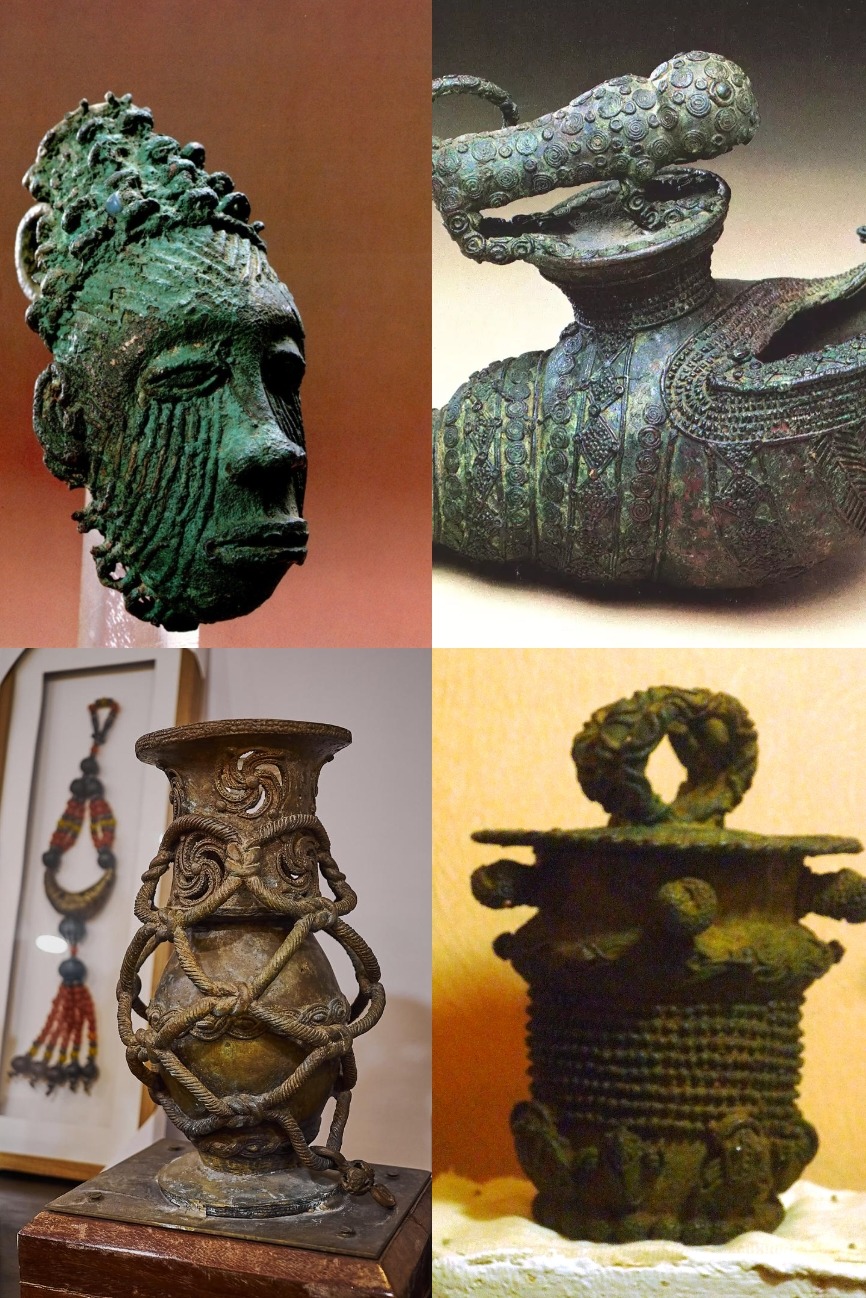
















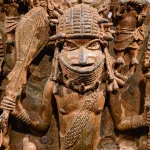
Follow Us